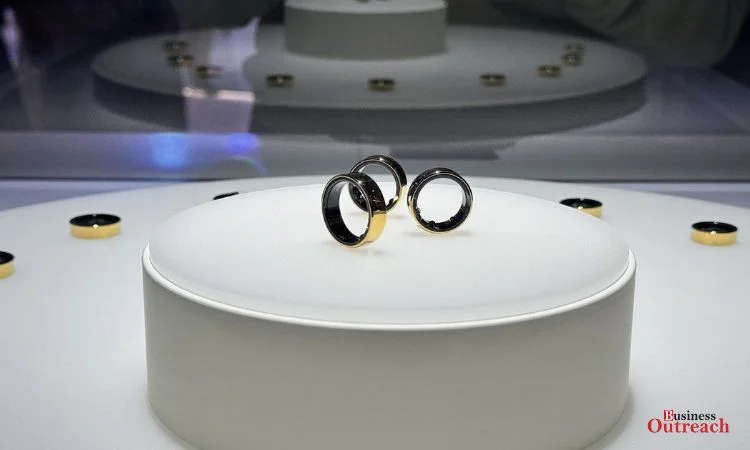Samsung is gearing up for the launch of its Galaxy Ring, a new health-and-fitness wearable, in the US around August. This launch might coincide with the debut of Samsung’s next-generation Galaxy Z series foldable devices, anticipated during a Galaxy Unpacked event in July. However, the launch could face delays due to potential patent infringement lawsuits from Finnish health-tracking company Oura.

Oura’s legal threats revolve around five specific patents related to functionalities in ring-style fitness trackers. These include innovations in battery placement, the use of a “Score” to measure fitness targets, and various health metric sensors. Samsung has already sought legal counsel from the US District Court in California to prepare for these potential lawsuits.
The Samsung Galaxy Ring has been listed in the Federal Communication Commission’s (FCC) testing records, detailing the ring sizes and battery specifications. The ring is expected to be available in sizes 5 to 12, with battery capacities ranging from 17mAh to 22mAh. This variety suggests that battery life will be size-dependent.
Reports indicate that the Galaxy Ring could be priced between $300 and $350 in the US and around Rs 35,000 in India, placing it in the same price range as Samsung’s Galaxy Watch lineup. The device is expected to feature advanced health-tracking sensors and technologies, positioning it as a significant competitor in the wearable tech market.
The health-and-fitness wearable market is highly competitive, with Oura already established as a key player. Oura’s products are renowned for their precise health tracking and innovative use of ring-based wearables. Samsung’s entry into this market with the Galaxy Ring marks its ambition to capture a share of this niche but growing segment.
The Galaxy Ring is part of Samsung’s broader strategy to expand its wearable portfolio, which currently includes smartwatches, fitness bands, and wireless earbuds. This move reflects the company’s intent to diversify its product offerings and strengthen its presence in the health and fitness sector.
The anticipated features of the Galaxy Ring suggest it will offer comprehensive health monitoring capabilities, including heart rate tracking, sleep analysis, and possibly even blood oxygen level measurement. These features align with current consumer trends that emphasize health and wellness, making the Galaxy Ring an attractive option for health-conscious users.
If the Galaxy Ring is launched successfully without legal hindrances, it could set a new standard for health-and-fitness wearables. Samsung’s established reputation and extensive marketing capabilities might provide it with a competitive edge over smaller players like Oura.
Samsung’s foray into the smart ring market with the Galaxy Ring highlights its commitment to innovation in wearable technology. Despite potential legal challenges from Oura, the Galaxy Ring is poised to make a significant impact if it reaches the market as planned. Its advanced features, competitive pricing, and alignment with consumer health trends make it a promising addition to Samsung’s product lineup.















